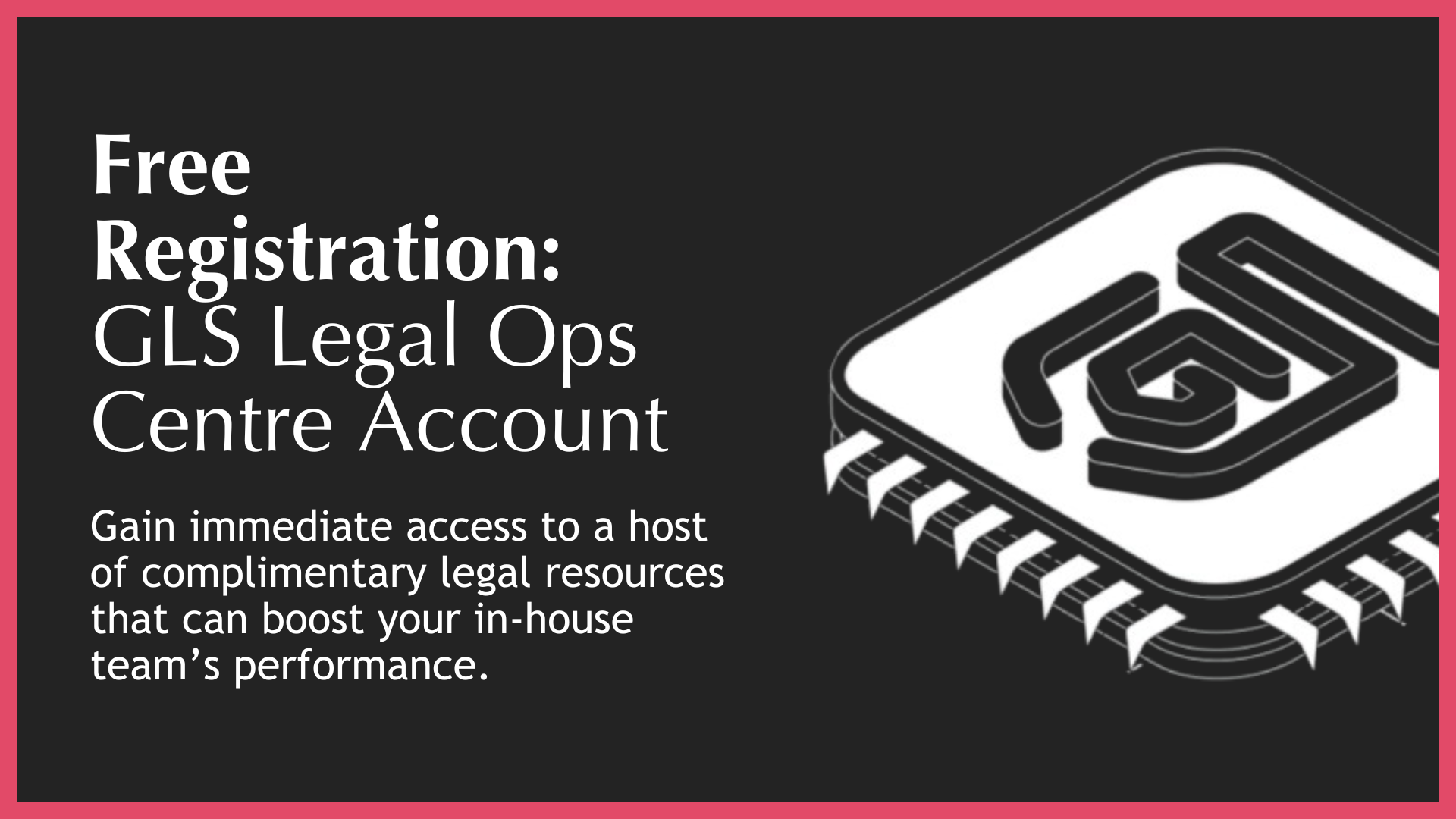The GLS Legal Operations Centre
The ultimate in-house legal department resource stack
Back
Playbooks
What Is It
Playbooks are structured guides that outline procedures and best practices for managing contracts. They ensure consistency, efficiency, and adherence to standards across all contracting activities.
The Contracting Playbook is a structured guide that defines positions, procedures, and strategies for negotiating contracts efficiently and securing acceptable legal outcomes.
It serves as a reference tool, providing users with pre-approved responses, fallback positions, and negotiation strategies for common contractual issues.
Playbooks, alongside the Group Legal Policy (GLP), are key “apex” assets defining the contracting framework. They provide detailed protocols and guidelines for effectively handling various contracting scenarios.
By equipping teams with predefined approaches, the Contracting Playbook ensures consistency, alignment with business objectives, and improved negotiation outcomes.
The Playbook includes guidance on anticipated arguments, pre-emptive counters, and parameters within which the organisation can accept specific contractual terms.
It acts as a bridge between legal teams and business units, ensuring that commercial teams negotiate within legally approved frameworks.
A well-maintained Playbook enables faster decision-making, reduces reliance on legal teams for routine contract negotiations, and minimises contractual risks.
Given evolving legal landscapes and market dynamics, Playbooks must be regularly updated to incorporate new strategies, laws, and business priorities.
The importance of Playbooks in optimising performance cannot be overstated—they directly impact every aspect of contract management by providing actionable instructions that ensure consistency and efficiency.
The absence of a robust Playbook results in inefficiencies, inconsistent negotiation outcomes, and increased legal and compliance risks.
Scope
The Contracting Playbook can be customised for each organisation based on what is deemed helpful. As a minimum – a playbook should cover the following areas:
◼️ Part 1 – Tool Guidance Note: detailed instruction on how to use the tool
◼️ Part 2 – Profile Clause/Issues: a break down of key contractual concepts that the tool is to support and preferred negotiation strategies
◼️ Part 3 - Standard Positions: Pre-approved organisational stances on key contractual provisions.
◼️ Part 4 - Alternative Positions: Fallback positions available for negotiation without escalating to legal.
◼️ Part 5 - Prohibited Terms: Clauses and conditions that the organisation must not accept.
◼️ Part 6 - Escalation Pathways: Defines when and how issues should be referred to legal or senior management.
◼️ Part 7 - Negotiation Arguments: Strategies for handling specific counterparty objections and common negotiation challenges.
Resource Status
In the GLS legal ops – the Playbooks CRE is considered both a “Foundational” and “Repeater” resource within the process ecosystem of an in-house legal team.
The Foundational Resource is a CRE that is responsible for determining the overall performance capabilities of a “critical” legal function. If it is not optimised, the function can never be optimised.
A Repeater Resource is a CRE that is common to two or more “critical legal dept. functions”. Once optimised, this CRE can improve all critical legal functions in which it is comprised.
Playbooks serve as a prime example of a “Foundational” resource, essential for ensuring that contracting processes are consistently effective and aligned with best practices.
Best Practice Features
The best practice features of Playbooks are as follows:
◼️ 80% Rule: address scenarios that occur 80% of the time, not every possible situation
◼️ Documented: Playbooks must be thoroughly documented to be effective
◼️ Pre-Approved Positions: Reduces time spent on negotiations by providing standard responses.
◼️ Clarity & Precision: Clear guidance on contractual positions and strategies.
◼️ Efficacy: it should be effective, even if not exhaustive, in covering every issue
◼️ Accessibility: ensure Playbooks are accessible but controlled to maintain confidentiality
◼️ Compliance: regularly monitor adherence to the Playbooks’ guidelines
◼️ Continuous Improvement: constantly update Playbooks to reflect new practices and feedback
◼️ Authority: endorse Playbooks to ensure it has organisational support
◼️ Balanced Approach: offer a balanced perspective on industry standards and risks
◼️ Conciseness: keep Playbooks concise while ensuring it is comprehensive
◼️ Adaptability: Allows updates to reflect evolving business and regulatory needs.
◼️ Usability: Designed for easy use by non-legal personnel with intuitive navigation.
◼️ Alignment with Business Goals: Ensures negotiations support broader corporate objectives.
◼️ Integration with Other Contracting Tools: Works in tandem with templates, clause libraries, and workflow tools.
◼️ Training & Adoption Support: Ensures users understand how to apply the Playbook effectively.
Business Value
Playbooks deliver the following value to the Business:
◼️ Operational Efficiency: speeds up and improves the contract management process
◼️ Risk Reduction: identifies and manages contract risks, minimising disputes
◼️ Revenue Protection: safeguards profits by reducing disputes and penalties
◼️ Legal Team Support: equips the legal team with a structured framework for contracts
◼️ Accelerating Negotiations: Reduces time spent on contract discussions.
◼️ Minimising Legal Bottlenecks: Reduces routine legal reviews by equipping teams with pre-approved guidance.
◼️ Ensuring Consistency: Standardises contract terms and negotiation approaches.
◼️ Reducing Risk: Ensures adherence to company-approved risk parameters.
◼️ Enhancing Deal Outcomes: Improves negotiation leverage with structured responses.
◼️ Improving Compliance: Ensures contracts align with legal and regulatory requirements.
◼️ Reducing Costs: Minimises legal spend on contract reviews and dispute resolution.
◼️ Supporting Scalable Growth: Facilitates contract expansion without increasing legal overhead.
◼️ Strengthening Supplier & Customer Relations: Establishes predictable and fair contract terms.
◼️ Enabling Strategic Decision-Making: Empowers business teams with legal knowledge.
Legal Department Value
Playbooks deliver the following value for the Legal Department:
◼️ Reducing Legal Workload: Eliminates repetitive contract queries and reviews.
◼️ Enhancing Efficiency: Streamlines contract-related decision-making.
◼️ Ensuring Compliance: Embeds legal requirements into negotiation processes.
◼️ Reducing Contracting Risks: Helps avoid legal pitfalls through standardised positions.
◼️ Improving Response Times: Speeds up legal review and approvals.
◼️ Empowering Business Teams: Enables commercial teams to negotiate within approved limits.
◼️ Enhancing Training: Provides structured learning for new hires and business teams.
◼️ Facilitating Continuous Improvement: Encourages refinement based on real-world feedback.
◼️ Reducing External Legal Spend: Lowers reliance on external counsel for contract negotiations.
◼️ Increasing Legal Visibility: Ensures legal principles are consistently applied in business dealings.
◼️ Team Empowerment: enhances the legal team’s capabilities with structured guidelines
◼️ Team Morale: boosts morale with clear guidelines and defined roles
◼️ Technology Integration: supports the adoption of new technologies in contract management
Who Needs It
Playbooks are essential for:
◼️ Legal Teams: Ensuring compliance and risk management.
◼️ Procurement & Sourcing: Negotiating vendor contracts effectively.
◼️ Sales & Commercial Teams: Closing deals faster with clear contractual guidance.
◼️ Contract Negotiators: offers guidelines to standardise negotiation practices and ensure compliance.
◼️ Contract Managers: Standardising contract oversight and administration.
◼️ Compliance Officers: Ensuring adherence to regulations.
◼️ Finance Departments: Managing financial risks in contracts.
◼️ HR Teams: Structuring employment and consultant agreements.
◼️ External Legal Counsel: Providing a reference point for company positions.
◼️ Legal Operations Teams: provides a framework for managing and streamlining contract-related activities.
◼️ Senior Management: helps align contracting strategies with business objectives and risk management.
Productivity Consequences
A legal team operating without a Playbook will face a wide range of inefficiencies, including:
◼️ Slower Negotiations: Increased time spent resolving contract terms.
◼️ Inconsistent Outcomes: Varied terms leading to unpredictable risks.
◼️ Higher Legal Costs: Increased legal involvement in routine negotiations.
◼️ Greater Compliance Risks: Higher exposure to regulatory and contractual non-compliance.
◼️ Increased Business Friction: Misalignment between legal and commercial teams.
◼️ Longer Approval Cycles: Delays due to unclear decision-making guidelines.
◼️ Knowledge Silos: Loss of institutional knowledge when key individuals leave.
◼️ Weakened Negotiation Leverage: Lack of standard responses reduces bargaining power.
◼️ More Contract Disputes: Increased disagreements due to vague or inconsistent terms.
◼️ Inefficient Resource Allocation: Legal teams overburdened with routine negotiations.
◼️ Delegation Challenges: difficulty in assigning tasks to juniors due to lack of standardised procedures
◼️ Tech Integration: reduced effectiveness in adopting contract management technologies
◼️ Process Adherence: inability to implement and follow standardised workflows, leading to inefficiencies
◼️ Resource Planning: difficulties in planning and allocating resources due to unclear contracting guidelines
◼️ Training Gaps: challenges in training staff effectively without clear, documented procedures
◼️ Prioritisation Issues: difficulty in prioritising tasks and resources due to lack of clear guidelines
◼️ Morale Impact: lower team morale from ambiguity in roles and responsibilities
◼️ Workflow Bottlenecks: increased risk of delays and bottlenecks due to lack of streamlined processes
◼️ Budgeting Problems: less accurate budgeting for contracting activities due to unclear procedural expectations
◼️ Business Alignment: greater potential for conflicts with other business units due to undefined contracting boundaries
Tech Implications
The Playbooks has the following tech implications:
◼️ Digital Accessibility: Playbooks should be available online with restricted access to ensure security and ease of use
◼️ System Integration: it provides the framework for integrating with contract management systems and automation tools, ensuring consistency
◼️ Data Management: sets standards for handling contract data, impacting storage, retrieval, and security measures within tech platforms
◼️ Process Automation: influences the design of automated workflows and contract lifecycle management solutions to streamline processes
◼️ Compliance Tools: guides the implementation of compliance and risk management tools by defining necessary protocols and requirements
◼️ User Training: aids in developing training programs for tech tools based on Playbooks' guidelines to enhance user proficiency
◼️ Integration with CLM Systems: Embedding Playbook content into contract lifecycle management tools.
◼️ Accessibility & Searchability: Ensuring quick and easy access to guidance.
◼️ Version Control: Managing updates and ensuring users have the latest content.
◼️ User Permissions: Controlling access based on roles and responsibilities.
◼️ Data Security: Protecting sensitive negotiation strategies.
◼️ Training & Adoption Tools: Providing digital learning resources.
◼️ Analytics & Insights: Monitoring usage and identifying improvement areas.
◼️ Mobile Access: Enabling easy reference for remote or on-the-go users.
◼️ Scalability: Supporting growth across business units and geographies.
◼️ AI-Powered Enhancements: Using AI for contract clause recommendations and negotiations.
What Next?
The GLS Knowledge Centre has a wealth of resources available for learning more about the importance of the Group Legal Policy and how you can effectively implement one - check out a few on the right.
The GLS Legal Operations Centre contains everything you need to effectively implement your own tailored Group Legal Policy in a cost-effective and timely manner. Check out the resources linked on the right.
Also, feel free to contact GLS to book a consultation to discuss your Playbooks needs right here.


